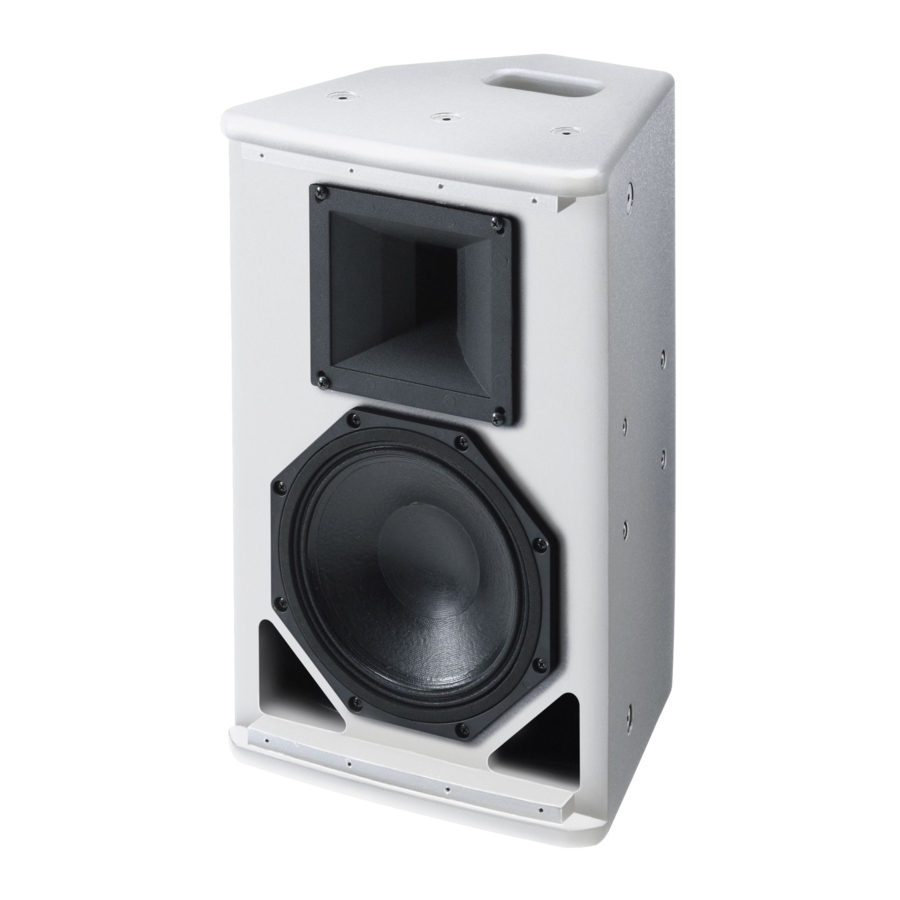Yamaha IF2208 Руководство по применению - Страница 32
Просмотреть онлайн или скачать pdf Руководство по применению для Акустическая система Yamaha IF2208. Yamaha IF2208 45 страниц. Installation series
Также для Yamaha IF2208: Руководство пользователя (6 страниц), Руководство пользователя (7 страниц), Руководство пользователя (6 страниц), Руководство пользователя (6 страниц), (Французский) Режим работы (7 страниц)

Application Guide for
Yamaha Installation Series Speakers
Recommended Amplifier
Although there is no single correct answer to the question of which amplifier to select, we can offer
some simple suggestions. The table in the following pages shows two different options and gives
recommended power ratings along with examples of possible choices of models. One option is to
maximize speaker performance, giving priority to sound quality, while the other gives priority to
using your speakers in a safe manner. The former will give better sound, but increases the risk of
speaker damage from signals received in an uncontrolled environment. The latter may increase the
probability of signals from the amplifier being clipped. But if you can ensure the signals from the
amplifier will not be clipped, it reduces the chance of damage to your speakers.
Although the table in the following pages shows only recommended values for matching speakers
and amplifiers, you should also consider the sound pressure level needed when selecting an
amplifier. Lower sound pressure level requirements allow you to use amplifiers with lower power
ratings. Using identical amplifiers can be beneficial as it allows for greater sonic consistency, and
can simplify maintenance and inventory. When using multiple loudspeaker types simultaneously, or
driving speakers in bi-amp or tri-amp mode, you may be using power amplifier channels with
higher power ratings than required (i.e. unusued headroom). However, when the HF is driven by
the same amplifier as the LF, you must take precautions to prevent excessive power reaching the
driver(s). Therefore, in order to avoid damage , you should set an appropriate attenuation level and
limiter level.
Regardless of which of the above options you select, it is impossible to eliminate the possibility of
speaker damage caused by factors such as microphone feedback, aggressive EQ, continuously
clipped signals from amplifiers, processors, and mixers, and sine waves played back for extensive
lengths of time. As such the recommendations listed here are not a guarantee of trouble-free
operation.
<Terminology used in the table>
Rcmd Pwr: The recommended power ratings of the amplifier.
(A) Amp: An amplifier recommendation for maximizing speaker performance when in a
well-controlled environment.
(B) Amp: An amplifier recommendation for using speakers safely when in an environment where
there is a high probability of excessive signal input.
32
